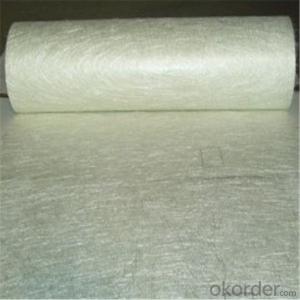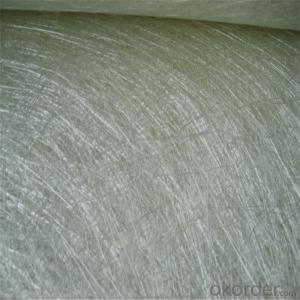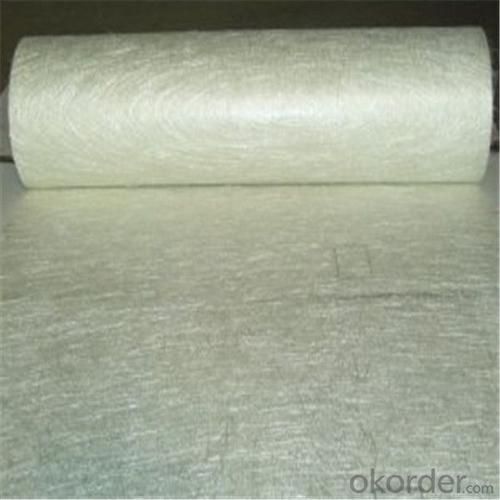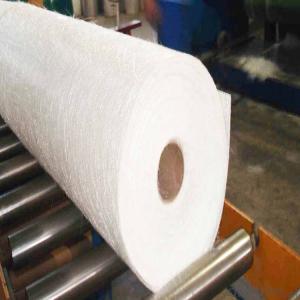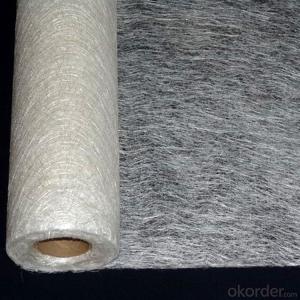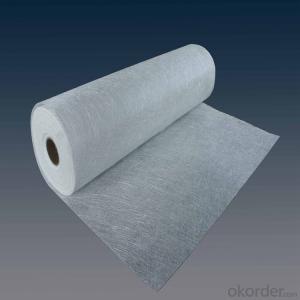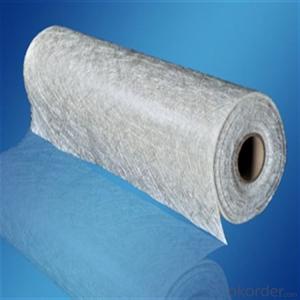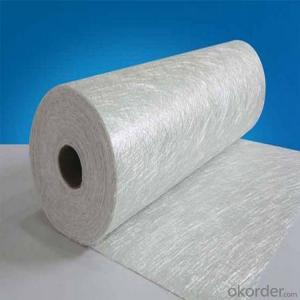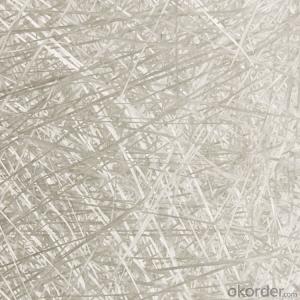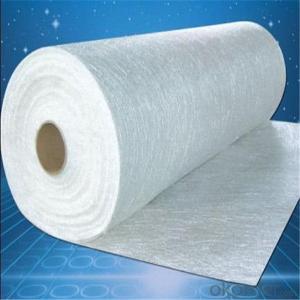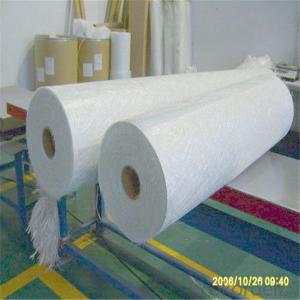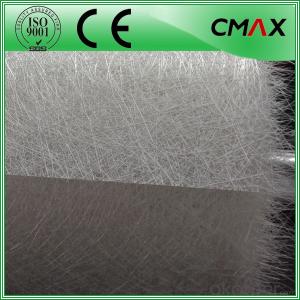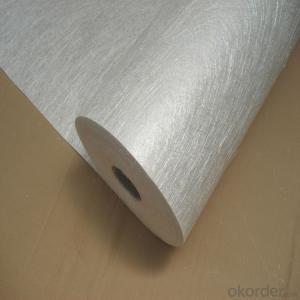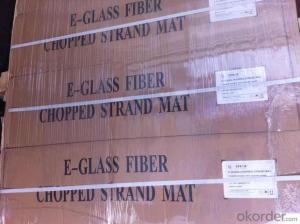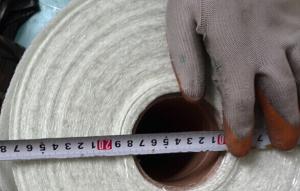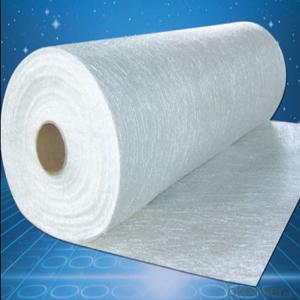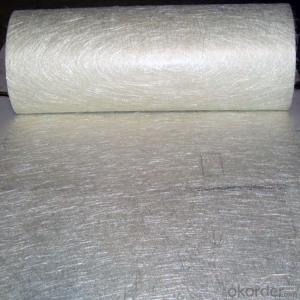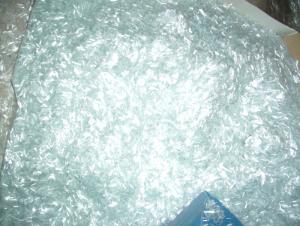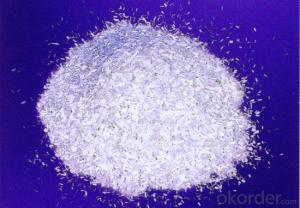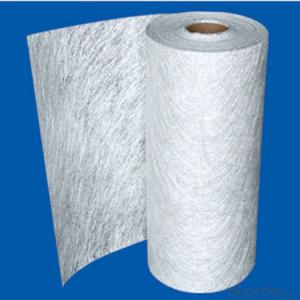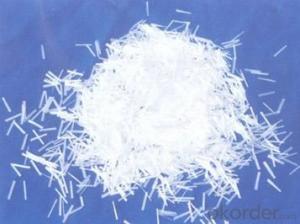Fiberglass Chopped Strand Mat Roll - Polyester Fiber Mat
- Loading Port:
- Tianjin
- Payment Terms:
- TT OR LC
- Min Order Qty:
- 100 m.t.
- Supply Capability:
- 20000 m.t./month
OKorder Service Pledge
Quality Product, Order Online Tracking, Timely Delivery
OKorder Financial Service
Credit Rating, Credit Services, Credit Purchasing
You Might Also Like
Quick Details
| Technique: | Chopped Strand Fiberglass Mat (CSM) | Dimensions: | 450gsm | Mat Type: | Continuous Filament Mat |
| Fiberglass Type: | E-Glass | Softness: | softness | Place of Origin: | Jiangxi, China (Mainland) |
| Brand Name: | cnbm | Model Number: | 450gsm | color: | white |
| fiberglass type: | E glass | product: | e-glass powder chopped stand mats | binder: | powder or emulsion |
| width: | 1040 or 1270mm, as your requirement | weight: | 30 or 45kg/roll | paper tube diameter: | 90mm |
| outer diameter of roll: | 256mm | packing: | plastic film+carton box + pallet |
Packaging & Delivery
| Packaging Details: | plastic film+carton box + pallet |
| Delivery Detail: | 15-20days |
Specifications
1.e-glass powder chopped stand mats
2.binder:power or emulsion
3.width:1040mm or 1270mm
4.weight:450gsm
Picture
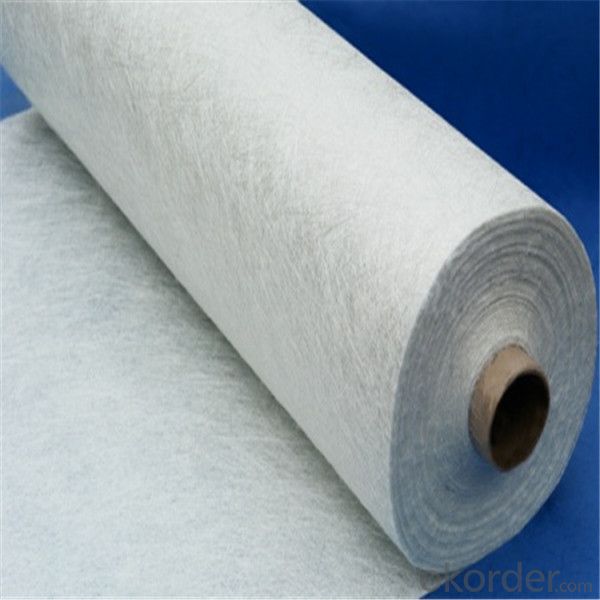
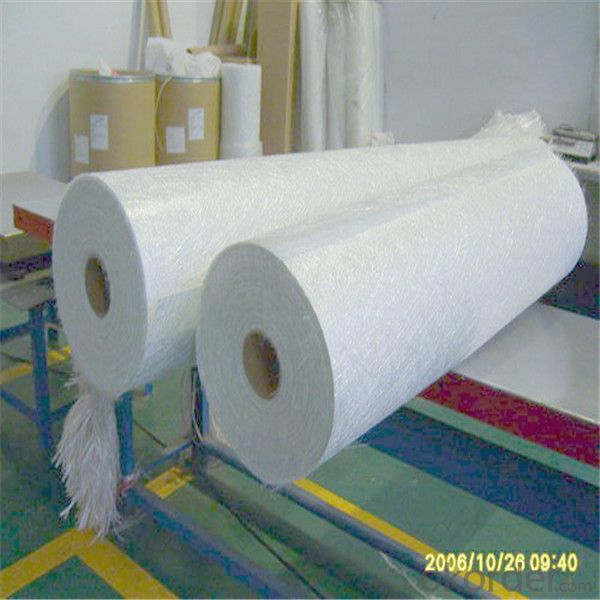
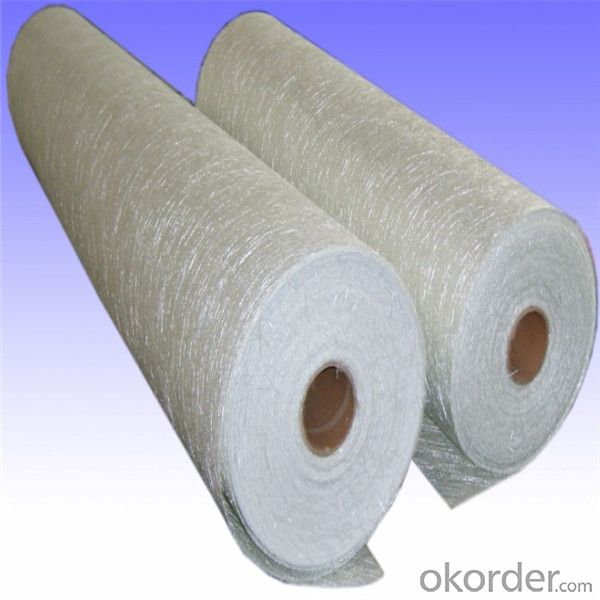
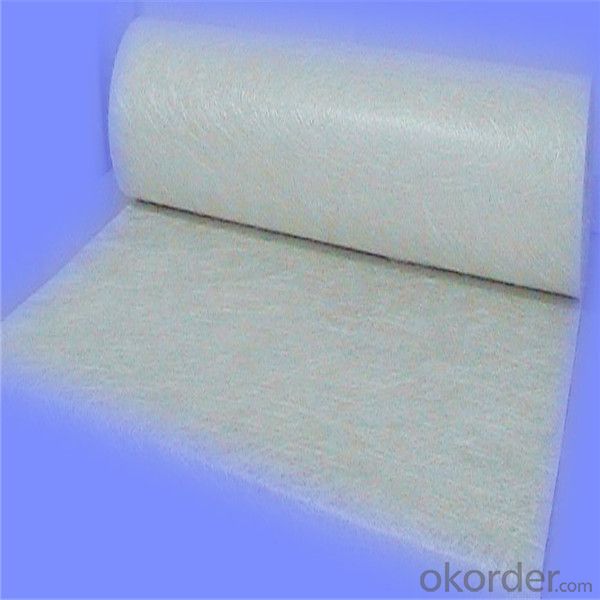
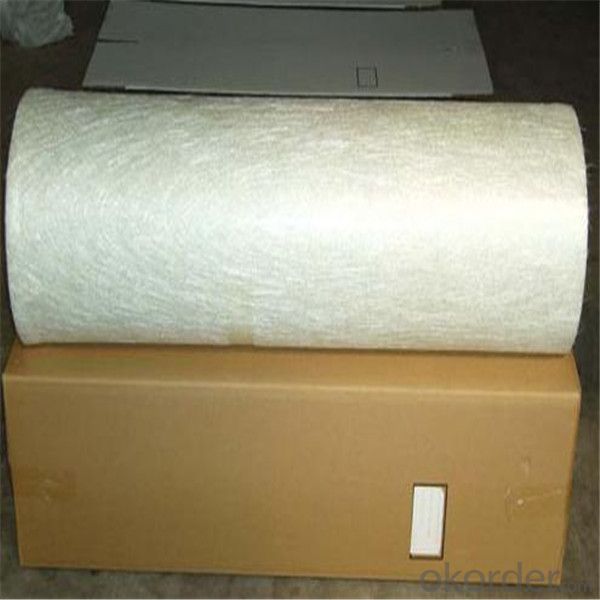
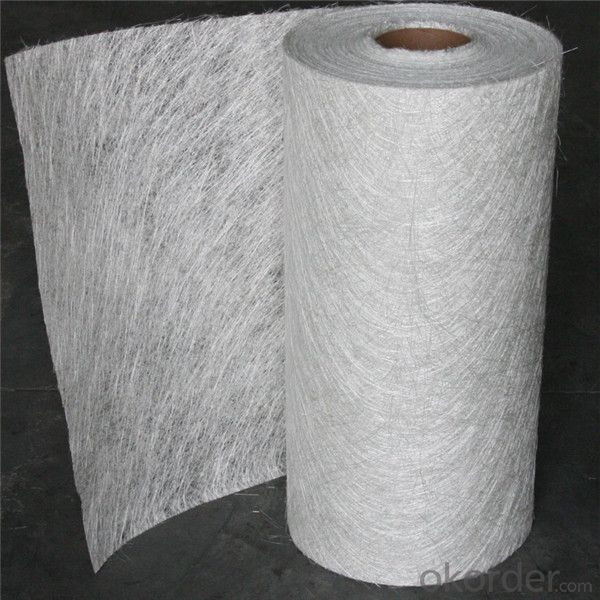
- Q: What is the cost of fiberglass chopped strand?
- The cost of fiberglass chopped strand can vary depending on several factors such as the quality of the material, the quantity being purchased, and the supplier. On average, the price for fiberglass chopped strand ranges from $1 to $3 per pound. It is important to consider that bulk purchases or sourcing directly from manufacturers may result in lower prices. Additionally, prices may also vary based on the specific application or industry requirements. It is advisable to request quotes from multiple suppliers and compare prices to ensure the best value for your needs.
- Q: Can fiberglass chopped strand be used in the production of pipes and tanks?
- Yes, fiberglass chopped strand can be used in the production of pipes and tanks. Fiberglass chopped strand is commonly used as a reinforcement material in the manufacturing of various composite products, including pipes and tanks. The chopped strand is typically mixed with a resin matrix, such as polyester or epoxy, and then molded into the desired shape. The fiberglass reinforcement provides excellent strength, durability, and corrosion resistance to the final product, making it suitable for applications in the pipe and tank industry. Additionally, fiberglass chopped strand offers good dimensional stability, low thermal expansion, and high chemical resistance, which are essential properties required in the production of pipes and tanks. Overall, the use of fiberglass chopped strand in the manufacturing process helps to enhance the structural integrity and longevity of pipes and tanks.
- Q: Does fiberglass chopped strand improve the thermal conductivity of composite materials?
- No, fiberglass chopped strand does not improve the thermal conductivity of composite materials. In fact, it can actually lower the thermal conductivity due to its insulating properties.
- Q: How is fiberglass chopped strand packaged and shipped?
- Fiberglass chopped strand is typically packaged and shipped in various forms to ensure its safe transportation and handling. The packaging and shipping methods may vary depending on the manufacturer, customer requirements, and the specific type of fiberglass chopped strand being shipped. One common packaging method is to pack the chopped strand into cardboard boxes or plastic bags. The chopped strand is carefully placed and compressed into these packages to maximize the quantity per package and minimize the risk of damage during transit. These boxes or bags are then sealed to secure the contents and prevent any moisture or contaminants from entering. In some cases, fiberglass chopped strand may also be packaged in bulk bags or super sacks. These large bags are made from durable polypropylene material and can hold a significant amount of chopped strand, typically ranging from hundreds to thousands of pounds. Bulk bags often have lifting loops or straps attached to facilitate handling and loading onto pallets or trucks. Once packaged, fiberglass chopped strand is loaded onto pallets for shipment. The pallets are typically made of wood or plastic and are designed to provide stability and protection during transportation. The packages or bulk bags are securely strapped or shrink-wrapped to the pallets to prevent any movement or damage during transit. Shipping methods for fiberglass chopped strand can vary depending on the distance and destination. For shorter distances, the palletized packages or bulk bags may be transported using trucks or vans. For longer distances or international shipments, the chopped strand may be loaded into shipping containers and transported by sea or air freight. To ensure safe and intact delivery, fiberglass chopped strand may also be secured with additional protective measures such as stretch wrapping, corner protectors, or cushioning materials to minimize the risk of damage caused by vibrations or impacts during transit. Overall, the packaging and shipping of fiberglass chopped strand are crucial to maintain the structural integrity and quality of the product, as well as to ensure safe handling and transportation from the manufacturer to the customer.
- Q: What are the chemical compatibility properties of fiberglass chopped strand?
- Fiberglass chopped strand has excellent chemical compatibility properties due to its non-reactive nature. It is resistant to a wide range of chemicals, including acids, alkalis, and solvents. This makes it suitable for various applications where exposure to corrosive substances is a concern.
- Q: Can fiberglass chopped strand be used in insulation applications?
- Yes, fiberglass chopped strand can be used in insulation applications. Fiberglass chopped strand is a common material used in insulation due to its excellent thermal resistance properties. It effectively traps air pockets within its structure, which helps to reduce heat transfer and maintain a stable temperature in the insulated space. Additionally, fiberglass chopped strand insulation is lightweight, durable, and resistant to moisture, making it suitable for a wide range of insulation applications. Whether it is used in residential buildings, commercial establishments, or industrial facilities, fiberglass chopped strand insulation provides an effective solution for thermal insulation requirements.
- Q: How does the fiber alignment affect the properties of fiberglass chopped strand?
- The fiber alignment in fiberglass chopped strand plays a significant role in determining its properties. The alignment influences the strength, stiffness, and overall mechanical performance of the material. When the fibers are aligned parallel to each other, it enhances the material's tensile strength and stiffness, making it more resistant to deformation and capable of withstanding higher loads. On the other hand, if the fibers are randomly oriented, the material may exhibit isotropic properties, with similar strength in all directions. This random alignment can also enhance the material's impact resistance and reduce the risk of delamination. Therefore, proper fiber alignment is crucial in achieving the desired properties and performance of fiberglass chopped strand.
- Q: How does the chemical resistance of fiberglass chopped strand compare to other reinforcing materials?
- The chemical resistance of fiberglass chopped strand is generally quite high compared to other reinforcing materials. Fiberglass is made from a combination of glass fibers and resin, which provides it with excellent resistance to a wide range of chemicals, including acids, alkalis, solvents, and corrosive substances. Compared to other reinforcing materials such as steel or aluminum, which are prone to corrosion when exposed to certain chemicals, fiberglass chopped strand maintains its structural integrity and performance even in harsh chemical environments. This makes it a preferred choice for applications where chemical resistance is a critical factor, such as in the manufacturing of chemical storage tanks, pipes, and other chemical handling equipment. Additionally, fiberglass chopped strand is also known for its resistance to UV radiation and weathering, further enhancing its durability and longevity in various environments. However, it is important to note that the specific chemical resistance of fiberglass chopped strand can vary depending on the type of resin used and the manufacturing process, so it is always advisable to consult the manufacturer or supplier for detailed information on the chemical compatibility of a specific fiberglass product.
- Q: What are the impact resistance properties of fiberglass chopped strand?
- The impact resistance properties of fiberglass chopped strand refer to its ability to withstand and absorb impact or sudden forces without breaking or fracturing. Fiberglass chopped strand is known for its excellent impact resistance, making it a popular material choice in various industries. The impact resistance of fiberglass chopped strand is primarily attributed to its unique composition and manufacturing process. Chopped strand consists of small, randomly chopped fibers that are then mixed with a binder to form a mat or matting. These fibers are typically made of glass, which gives them exceptional strength and durability. Due to its inherent properties, fiberglass chopped strand exhibits high impact resistance. When subjected to sudden forces or impacts, the fibers in the chopped strand matting are able to distribute the load evenly across the material, dissipating the energy and preventing the formation of cracks or fractures. This makes fiberglass chopped strand a reliable choice for applications that require resistance to impact, such as automotive parts, boat hulls, and construction materials. Furthermore, fiberglass chopped strand can be further enhanced with the addition of resin or other additives during the manufacturing process. This allows for the customization of its impact resistance properties to meet specific requirements. By adjusting the resin content or incorporating additional materials, the impact resistance of fiberglass chopped strand can be increased to withstand even higher forces or impacts. In conclusion, fiberglass chopped strand offers excellent impact resistance properties due to its composition and manufacturing process. Its ability to absorb and distribute impact forces makes it a versatile material for various applications. Whether it's in automotive, marine, or construction industries, fiberglass chopped strand is a reliable choice when durability and impact resistance are crucial factors.
- Q: Can fiberglass chopped strand be used in construction applications?
- Fiberglass chopped strand finds extensive use in construction applications. It serves as a reinforcement component in diverse construction products like concrete, asphalt, and composites. By blending the chopped strands with other substances, their strength, durability, and resistance against impact, heat, and corrosion are significantly enhanced. Moreover, fiberglass chopped strand is employed for insulation purposes in construction, effectively providing both thermal and sound insulation properties. In conclusion, fiberglass chopped strand is a flexible and economical material suitable for a broad spectrum of construction applications.
Send your message to us
Fiberglass Chopped Strand Mat Roll - Polyester Fiber Mat
- Loading Port:
- Tianjin
- Payment Terms:
- TT OR LC
- Min Order Qty:
- 100 m.t.
- Supply Capability:
- 20000 m.t./month
OKorder Service Pledge
Quality Product, Order Online Tracking, Timely Delivery
OKorder Financial Service
Credit Rating, Credit Services, Credit Purchasing
Similar products
Hot products
Hot Searches
Related keywords
